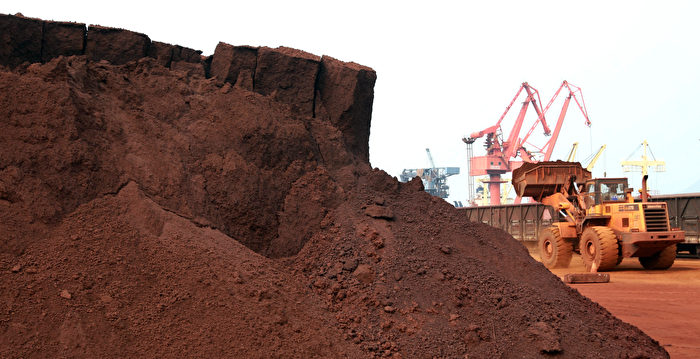Australia Invests $22 Million to Expand Rare Earths Development, Reduce Dependence on China
The Australian federal government announced on Monday that it will invest A$22 million (approximately US$14 million) to expand the development and production of rare earths and key minerals, in an effort to reduce its dependence on China.
Australian Resources Minister Madeleine King stated, “Australia’s resources industry aims to achieve net-zero emissions by 2050. The new research will help Australia further develop critical minerals and rare earth processing technologies and encourage downstream processing to produce cleaner components of technology.”
The investment has two main objectives: gaining a place in the global supply chain supporting the green energy transition and reducing reliance on China for rare earths and critical minerals. China is Australia’s main supplier of rare earths and critical minerals, and is also Australia’s main processor and refiner of important metals.
The funding announced by the Department of Resources will be used to support three research institutions, awarding approximately A$14 million to the Australian Nuclear Science and Technology Organization (ANSTO) to accelerate research into the discovery, extraction and processing of rare earth elements from low-grade mineral deposits. Another $5 million will be awarded to the Commonwealth Scientific and Industrial Research Organization (CSIRO), and Geoscience Australia received $2.7 million to explore domestic industry development for gallium, germanium and indium.
Rare earth elements are essential for many high-end products such as smartphones, electric cars, wind turbines, and intercontinental missiles. The move comes after Chinese authorities recently threatened to ban the sale of rare earth elements to intimidate other countries.
Critical minerals and rare earths have become an important geopolitical issue as the world takes action to combat climate change, with China moving to try to maintain its influence in supply, processing and refining, leaving the West and others to look for alternatives. Australia’s Lynas Rare Earths is the largest rare earth producer outside mainland China, with its refining facilities in Malaysia.
Under the leadership of former Australian Prime Minister Scott Morrison, the Australian federal government approved a A$1.25 billion loan to major mining company Iluka Resources in 2022 to develop the country’s first rare earth refinery. In October last year, the Labor government led by Australian Prime Minister Anthony Albanese announced that it would expand the Critical Minerals Facility by A$2 billion, providing funding for projects in line with the Critical Minerals Strategy.
The Australian government has also established a task force with the US government to “increase investment in critical mineral mining and processing projects in our respective countries and increase market transparency in the industry.” This investment marks a significant step for Australia as it seeks to establish itself as a global clean energy supplier and reduce its reliance on China for rare earths and critical minerals.
